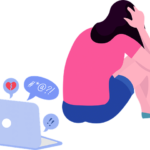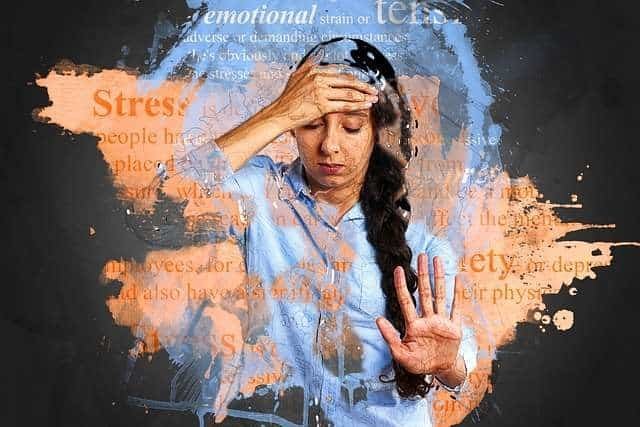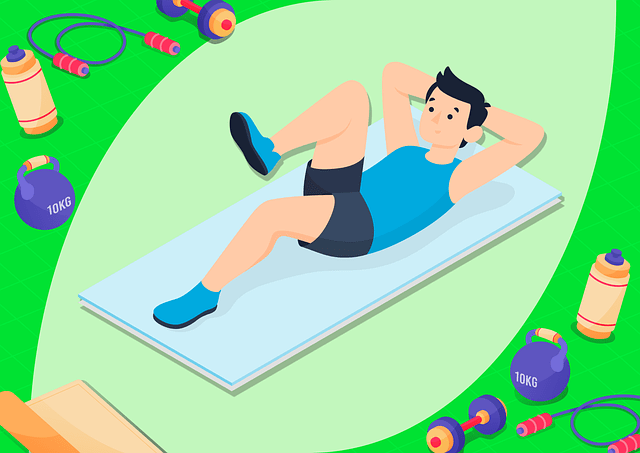Introduction
Are you experiencing anxiety? Are you feeling depressed and do not know how to manage it? You are not alone. Anxiety affects millions of people worldwide, and it can be a challenging condition to manage. In this article, we will explore effective ways to cope with anxiety, including natural remedies, lifestyle changes, and therapy.
What is Anxiety?
It is a normal human emotion that helps us to prepare for danger. Our bodies respond by releasing stress hormone like adrenaline, nor-adrenaline whenever we perceive a threat, which triggers the “fight, flight or fright” response and helps us to stay alert, focused, and ready to take action.
It can range from mild to severe and can be either short-term or long-lasting. Mild one can be manageable and may not interfere with daily life, but severe one can be debilitating, affecting a person’s ability to work, socialize, and carry out everyday tasks.
However, when anxiety becomes excessive and chronic, it can interfere with daily life activity. People with anxiety may experience intense, persistent worry, fear, or dread. They may also experience physical symptoms like rapid increase in heart, excessive sweating, trembling, and shortness of breath.
It is most common mental health problem in the United States, affecting millions of people every year. It is estimated that one in four people will experience anxiety disorder at some point in their lives. People with anxiety disorders often feel overwhelmed, anxious, and worried all the time, even when there is no clear cause.
Types of Anxiety Disorders
It can manifest itself in various forms, including
- Panic Attacks
- Phobias,
- Obsessive-Compulsive Disorder (OCD)
- Post-Traumatic Stress Disorder (PTSD)
- Generalized Anxiety Disorder (GAD).
It is important to understand the different types of anxiety and their symptoms, as well as the underlying causes and treatment options.
Panic Attacks
Panic disorder is characterized by sudden and intense episodes of fear that come out of the blue and often last for several minutes. People with panic disorder may experience physical symptoms such as rapid heartbeat, sweating, shaking, and shortness of breath.
Phobias
Phobias are intense fears of specific objects or situations that are out of proportion to the actual danger they pose. Common phobias include fear of spiders, fear of flying, and fear of public speaking. People with phobias often go to great lengths to avoid the object or situation they fear, even when it interferes with their daily lives.
Obsessive-compulsive disorder (OCD)
Obsessive-compulsive disorder (OCD) is a type of anxiety disorder that is characterized by intrusive thoughts (obsessions) and repetitive behaviors (compulsions) that a person feels compelled to perform. People with OCD may have a fear of contamination, a need for order and symmetry, or an intense worry about harming others. They may engage in repetitive behaviors such as excessive cleaning, checking, or counting to alleviate their anxiety.
Post-traumatic stress disorder (PTSD)
Post-traumatic stress disorder (PTSD) is a type of anxiety disorder that can develop after a person has experienced or witnessed a traumatic event, such as a natural disaster, a car accident, or a sexual assault. People with PTSD often experience intrusive thoughts, flashbacks, and nightmares related to traumatic events. They may also feel irritable, easily startled, and have difficulty sleeping.
Generalized anxiety disorder (GAD)
GAD is characterized by excessive and persistent worry about a variety of everyday events and activities. People with GAD may feel anxious about work, health, relationships, and finances, and often experience physical symptoms such as fatigue, headaches, and muscle tension.
Each of these kinds has its unique sign, symptoms, causes, and treatment options. However, they all share the common features that interferes with daily life.
Causes of Anxiety
The exact cause of this disorders is not well understood, but research suggests that a combination of genetic, biological, and environmental factors may play a role. People with anxiety disorders may have an overactive amygdala, a brain region that is responsible for processing emotions, including fear and anxiety. They may also have imbalances in certain neurotransmitters, such as serotonin, dopamine, and norepinephrine, which regulate mood and behavior. Additionally, traumatic experiences, stressful life events, and a family history can increase the risk of developing an anxiety disorder.
There are many factors that can contribute to the development of anxiety, including:
- Genetics: It can run in families and some people may be predisposed to it due to their genetic makeup.
- Life events: Traumatic events, such as the loss of a loved one or a traumatic experience, can increase the likelihood of developing anxiety.
- Substance abuse: Substance abuse, including alcohol and drugs, can cause or worsen anxiety symptoms.
- Chronic stress: Chronic stress can trigger or worsen symptoms.
- Medical conditions: Certain medical conditions, such as heart disease or thyroid disorders, can increase the risk of developing anxiety.
- Cognitive and personality factors: Certain cognitive and personality factors, such as negative thinking patterns, low self-esteem, and perfectionism, can increase the likelihood of developing anxiety.
Symptoms of Anxiety Disorder
Anxiety can manifest itself in many ways, both physically and mentally. Some common physical symptoms include:
- Rapid heartbeat
- Sweating
- Nausea
- Dizziness
- Muscle tension or tremors
- Shortness of breath
- Chest pain
- Insomnia
Mental symptoms of anxiety can include:
- Constant worry or fear
- Racing thoughts
- Avoiding certain situations or places
- Irritability
- Restlessness
- Concentration difficulties
- Fatigue
- Negative self-talk
Treatments for Anxiety
The good news is that anxiety disorders are treatable. A variety of effective treatment options are available, including.
- Medications: Antidepressants, beta-blockers, and anti-anxiety medications can help to manage anxiety symptoms.
- Therapy: Cognitive-behavioral therapy (CBT), exposure therapy, and mindfulness-based therapy are all effective in treating anxiety.
- Lifestyle changes: Making changes to your lifestyle, such as getting regular exercise, eating a healthy diet, and reducing stress, can help to manage anxiety symptoms.
- Complementary therapies: Complementary therapies, such as yoga, meditation, and acupuncture, can help to reduce anxiety symptoms.
It is important to note that while these treatments can be effective, they are not a cure for anxiety. Instead, they help to manage symptoms and improve overall quality of life.
How to Manage Anxiety
Natural Remedies for Anxiety
If you are experiencing mild to moderate anxiety, natural remedies may help. Here are some natural remedies for anxiety that you can try:
1. Exercise
Exercise is an effective way to reduce anxiety. When you exercise, your body releases endorphins, which are natural mood-boosters. Exercise can also help you to relax and reduce tension in your muscles.
2. Mindfulness Meditation
Mindfulness meditation involves focusing your attention on the present moment. This practice can help to reduce anxiety by calming your mind and reducing rumination.
3. Herbal Remedies
Herbs such as chamomile, lavender, and passionflower have been shown to reduce anxiety symptoms. These herbs can be taken in the form of tea, capsules, or tinctures.
4. Aromatherapy
Aromatherapy involves using essential oils to promote relaxation and reduce anxiety. Essential oils such as lavender, bergamot, and ylang-ylang have been shown to have calming effects.
Lifestyle Changes for Anxiety
Making lifestyle changes can also help to reduce anxiety. Here are some lifestyle changes that you can make to manage anxiety:
1. Get Enough Sleep
Sleep deprivation can exacerbate anxiety symptoms. Make sure that you are getting enough sleep each night.
2. Limit Caffeine Intake
Caffeine can trigger anxiety symptoms in some people. If you are experiencing anxiety, consider limiting your caffeine intake.
3. Practice Relaxation Techniques
Relaxation techniques such as deep breathing, progressive muscle relaxation, and visualization can help to reduce anxiety symptoms.
4. Maintain a Healthy Diet
Eating a healthy diet can help to reduce anxiety. Avoid processed foods, sugary foods, and alcohol, which can exacerbate anxiety symptoms.
Therapy for Anxiety
If natural remedies and lifestyle changes are not effective, therapy may be necessary. Here are some types of therapy that can be helpful for managing anxiety:
1. Cognitive Behavioral Therapy (CBT)
CBT is a type of therapy that focuses on changing negative thought patterns and behaviors. CBT can help you to identify and challenge anxious thoughts and beliefs.
2. Exposure Therapy
Exposure therapy involves gradually exposing yourself to anxiety-provoking situations. This type of therapy can help you to overcome your fears and reduce anxiety.
3. Acceptance and Commitment Therapy (ACT)
ACT is a type of therapy that helps you to accept and tolerate unpleasant emotions. ACT can help you to develop coping strategies and increase psychological flexibility.
How to Coping with Anxiety
There are several strategies that individuals can use to cope with anxiety, including:
1. Identify Triggers
Identify what triggers your anxiety. Keep a journal and record your thoughts, and feelings.
2. Practice Self-Care
Practice self-care regularly. Take care of your physical health by eating well, getting enough sleep, and exercising regularly. Take time for activities that you enjoy and that help you to relax.
3. Use Relaxation Techniques
Practice relaxation techniques such as deep breathing, progressive muscle relaxation, and visualization regularly. These techniques can help to reduce anxiety and promote relaxation.
4. Seek Support
Talk to friends and family about your anxiety. Join a support group for people with anxiety. Consider seeing a therapist who specializes in anxiety.
5. Use Positive Self-Talk
Use positive self-talk to counteract negative thoughts and beliefs. Tell yourself that you are capable, strong, and able to manage your anxiety.
6. Stay Present
Stay present and focus on the present moment. Avoid ruminating on the past or worrying about the future.
Seeking Professional Help for Anxiety
If anxiety is interfering with daily life, it may be necessary to seek professional help. A mental health professional can provide a diagnosis and develop a treatment plan tailored to the individual’s needs.
FAQs
1. What is the best natural remedy for anxiety?
The best natural remedy for anxiety will vary from person to person. Some people may find exercise helpful, while others may prefer mindfulness meditation or herbal remedies. It’s important to experiment with different remedies and find what works best for you.
2. Can lifestyle changes help to manage anxiety?
Yes, making lifestyle changes such as getting enough sleep, limiting caffeine intake, practicing relaxation techniques, and maintaining a healthy diet can help to reduce anxiety symptoms.
3. Is therapy effective for managing anxiety?
Yes, therapy can be very effective for managing anxiety. Types of therapy such as cognitive-behavioral therapy, exposure therapy, and acceptance and commitment therapy have been shown to be effective in reducing anxiety symptoms.
4. What should I do if I feel overwhelmed by my anxiety?
If you feel overwhelmed by your anxiety, take a break and engage in a relaxing activity. Practice deep breathing or progressive muscle relaxation. Reach out to a friend or family member for support.
5. Can anxiety be cured?
While anxiety may never be completely cured, it can be effectively managed. With the right treatment and lifestyle changes, many people are able to manage their anxiety symptoms and lead fulfilling lives.
6. How long does it take to see improvement in anxiety symptoms?
The timeline for improvement in anxiety symptoms will vary from person to person. Some people may see improvement within a few weeks of starting treatment, while others may take several months to see improvement.
Conclusion
Managing anxiety can be challenging, but there are effective ways to cope. Natural remedies such as exercise, mindfulness meditation, and herbal remedies can help to reduce anxiety symptoms. Lifestyle changes such as getting enough sleep, limiting caffeine intake, and practicing relaxation techniques can also be helpful. If natural remedies and lifestyle changes are not effective, therapy may be necessary. Cognitive-behavioral therapy, exposure therapy, and acceptance and commitment therapy have been shown to be effective in reducing anxiety symptoms. By identifying triggers, practicing self-care, using relaxation techniques, seeking support, using positive self-talk, and staying present, you can effectively manage your anxiety.














3 thoughts on “Anxiety No More: The Ultimate Guide to Managing Anxiety”